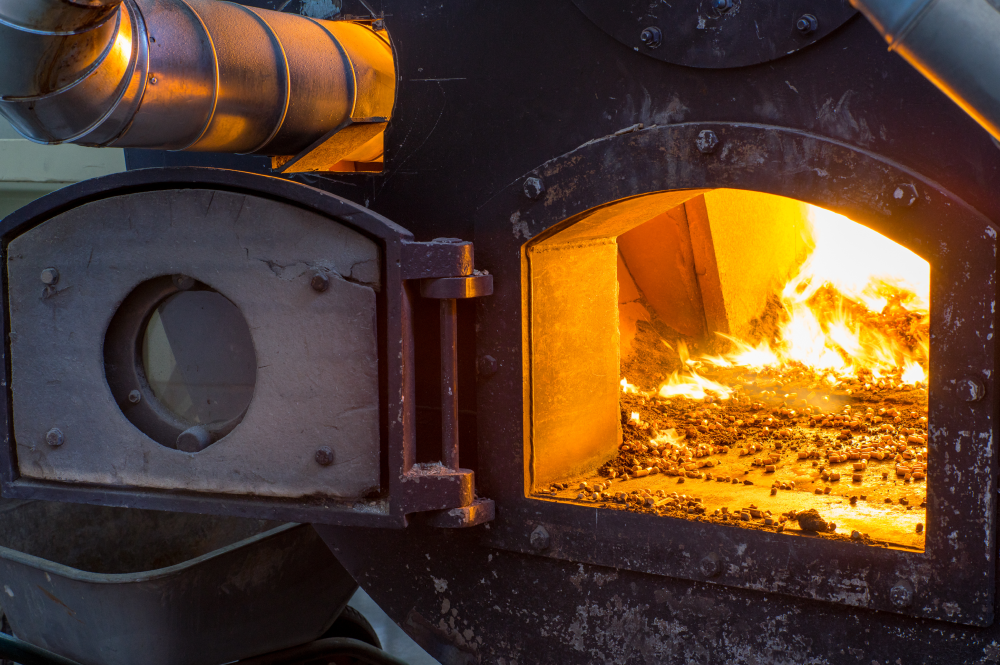The Pros and Cons of Biomass Boilers

The process of burning wood to provide fuel for heating and cooking has been employed around the world for eons and is still widely used, more recently in the form of biomass boilers. Whilst biomass boilers offer sustainability benefits, potential drawbacks may make them a less desirable option upon closer inspection.
A Short Summary of Biomass Boilers
Biomass refers to a biological material derived from living or recently living organisms and can either be used directly via combustion or converted into various biofuels for domestic and commercial use. Renewable resources like wood, agricultural waste, and dedicated energy crops are used to generate biomass.
Biomass fuels include wood chips and logs that are manually fed into boilers, wood pellets such as compressed sawdust, and agricultural waste such as straw that can be used in specialised boilers.
When biofuel is burned in a boiler’s combustion chamber, the hot gases that are generated are passed through a heat exchanger. This transfers heat to water, which is circulated through pipes to taps and radiators.
Biomass is widely available throughout the UK and is considered to be low carbon. The CO2 released during combustion returns to the atmosphere only to be reabsorbed by new crops planted for future fuel, completing the sustainability cycle.
The Pros
- A truly renewable fuel—biomass can regrow within human lifetimes, such as replanting trees after they have been felled
- High efficiency—modern boilers can achieve efficiency levels of 80-90%, comparable to gas and oil boilers1
- Naturally distributed—meaning it is a resource derived from nature
- Generally low-cost inputs
- Can be domestically produced for energy independence— wood pellets are most commonly used due to production ease and automation
- Low-carbon and cleaner than fossil fuels
The Cons
- Energy intensive to produce
- Regular maintenance is required, including cleaning and removing dust and blockages
- High upfront cost with initial investment higher than traditional oil and gas boilers
- Land utilisation can be considerable, sometimes leading to deforestation, thus having impacts on natural habitats
- Storage areas are required to keep the biomass fuel dry to improve combustion, adding a significant production cost
- Fuel crops may compete directly with food production (e.g. corn, soy)
- Limited range of power output where boilers operate efficiently
Furthermore, although biomass energy production is considered carbon neutral, it emits other gases that can be harmful to the environment. The production of biomass energy causes the release of nitrous oxide (N2O) and methane (CH4) that cannot be reabsorbed by simply replanting the biological material that was used.
Outlook
Biomass boilers provide a renewable energy option suitable for many applications and scales. However, potential adopters should carefully weigh the considerable initial investment and ongoing maintenance requirements against the benefits.
1SuperHomes


